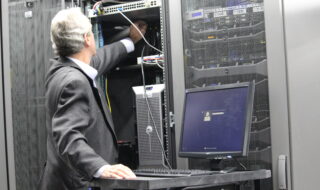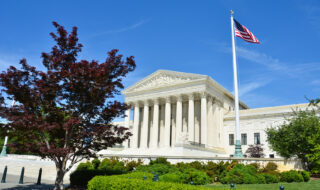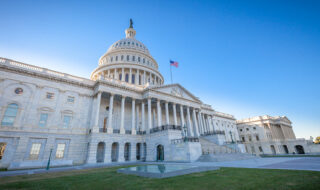August 31, 2022
Electric Vehicle Update: Which States Plan to Expand EV Charging Networks
Recently, Electric Vehicle (EV) infrastructure has become a hot-button topic in state legislatures. The Biden administration has made expanding EV networks a priority, with two recent major spending bills including funding for EV charging:
- The Inflation Recovery Act, passed in August 2022, included a 30% tax credit for EVs, as well as infrastructure for charging and refueling.
- The Infrastructure Investment and Jobs Act, a trillion-dollar spending bill passed in November 2021, allocated $5 billion to build a coast-to-coast network of EV fast-charging stations. States are set to receive tens of millions in federal funding for this network over the next five years.
States are grappling with economic and policy issues related to the transition towards EVs. Namely, who is going to build and maintain EV charging stations and other infrastructure, and who is going to foot the bill for them? While some states intend to require new construction to include EV charging stations and infrastructure, others are considering laws that would forbid cities and counties from passing such regulations. Other states are interested in ensuring competition in EV charging and preventing a public utility monopoly from forming.
“For small business owners, Electric Vehicle policies as well as EV charging and infrastructure policies may have broad implications,” said Tim Goodrich, NFIB Vice President of State Government Relations. “Across the nation we’re following this issue and defending small business owners interests in all 50 states as well as Washington, D.C.”
ILLINOIS
In January 2022, Illinois lawmakers introduced HB3125, a bill requiring new and renovated buildings to have dedicated parking spots with the wiring and other equipment necessary to install EV charging stations. The proposal requires at least six parking spaces set aside for EV charging in residential buildings and 20% set aside for commercial buildings. The bill passed the Illinois state House in March 2022 but stalled in the state Senate.
COLORADO
In February 2022, the Colorado state House introduced HB1218, a bill requiring new and renovated buildings to set aside a percentage of their parking spaces (20% for residential buildings and 10% for commercial buildings) for EV charging, and to equip residential and commercial buildings with the infrastructure needed to serve electric vehicles in the future. The bill passed the state House and Senate, but in June Governor Jared Polis vetoed the bill citing a potential increase in housing costs by $10,000-$15,000 per residential building.
NORTH CAROLINA
In May 2022, North Carolina lawmakers introduced a bill that would have discouraged free EV charging stations by requiring businesses that provide free EV charging to include on their receipts the proportional share paid by each customer for the free electricity, as well as prohibiting the use of public funds to provide or fund EV charging stations on publicly owned lands. The bill did not advance in the 2022 legislative session.
MISSOURI
In January 2022, the Missouri legislature introduced a bill that would ban cities and counties from requiring the installation of EV charging stations in new and renovated buildings. The bill was a response to ordinances passed by both the city and the county of St. Louis passing ordinances requiring businesses to install EV infrastructure in new and renovated buildings. The bill passed the House but stalled in the Senate.
GEORGIA
In February 2022, HB1322 was proposed in Georgia’s House of Representatives. The bill is meant to prevent utility companies such as Georgia Power and Georgia Electric Membership Corporation from creating a monopoly on EV charging stations so that private businesses will be able to compete and consumers will be protected. The bill has stalled in the House.
LOUISIANA
In June 2022, Louisiana Governor John Bel Edwards signed into law a bill to ensure competition in the EV charging industry and prevent public utility companies from forming a monopoly.
MINNESOTA
In February 2022, Minnesota House lawmakers introduced HF3220, which would have placed EV charging stations at?state-run highway rest stops?(where commercial activity is currently prohibited in law). This puts them in conflict with existing service stations and other private businesses that will be most affected by the transition to electric vehicles. Xcel, the state’s biggest electricity utility provider, has proposed a $150 million vehicle electrification package to state regulators.
In addition, a number of states have adopted California’s zero-emissions standards, with the ultimate goal to reduce vehicle emissions from light and medium vehicles to zero. These states are: Colorado, Connecticut, Delaware, Maine, Maryland, Massachusetts, Minnesota, New Jersey, New York, Oregon, Pennsylvania, Rhode Island, Vermont, Virginia, and Washington. Some states have also set deadlines to achieve these emission standards: California and Massachusetts by 2035, New York by 2045, and Washington by 2030. In Oregon, the Department of Environmental Quality announced plans to adopt California’s zero-emissions standards for light-duty vehicles by 2035. The Vermont legislature tried to also pass a 2035 deadline, but it failed after a veto from the governor.
NFIB is a member-driven organization advocating on behalf of small and independent businesses nationwide.
Related Articles














